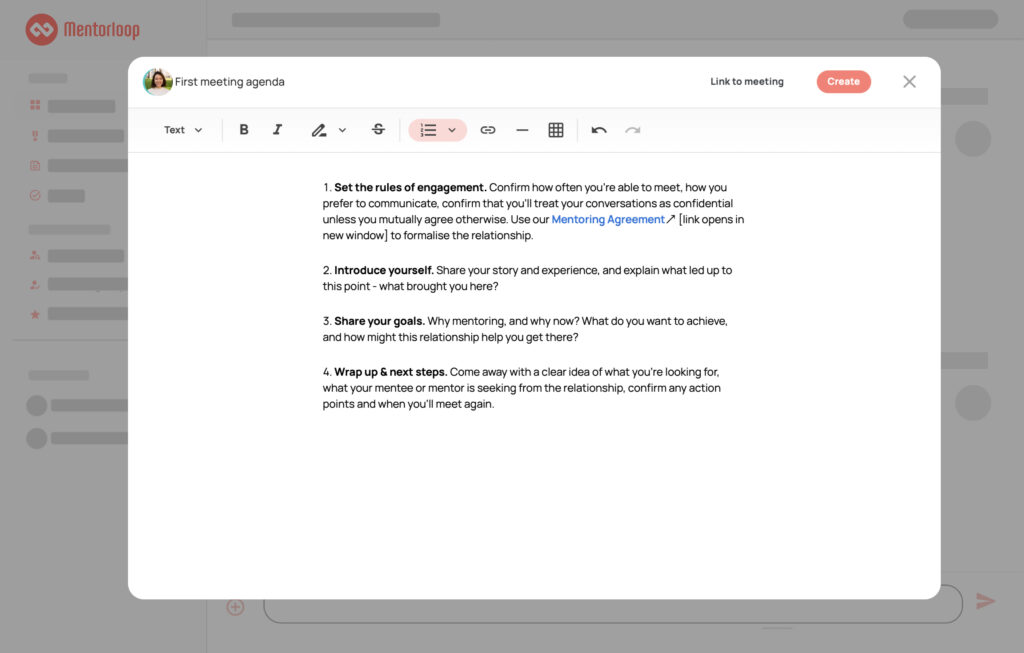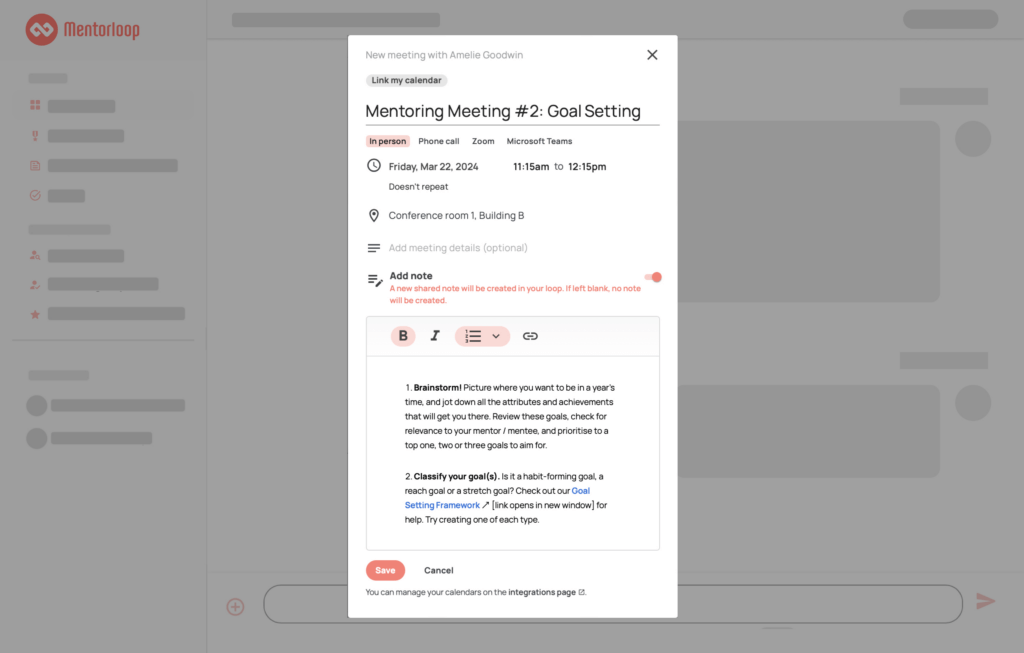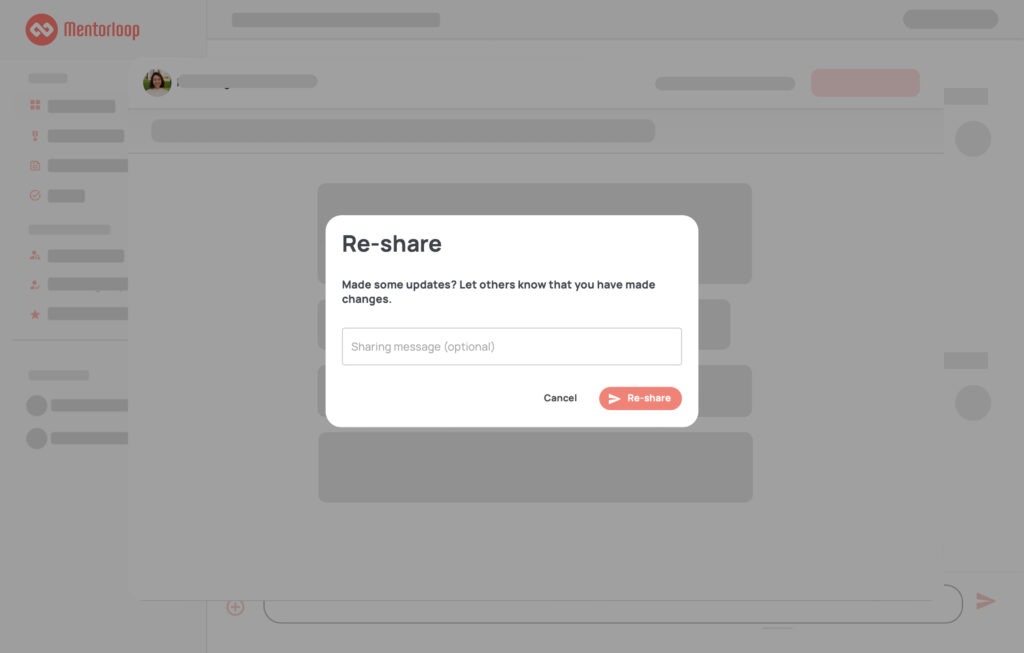As we move towards professional growth, mentorship serves as a guiding light, illuminating the path toward success with invaluable insights and advice. Yet, amidst the wealth of knowledge exchanged in these relationships lies an incredibly simple yet powerful tool often overlooked: note-taking. Capturing key lessons and observations through note-taking in mentoring sessions holds profound significance in fostering meaningful mentorship connections.
In this article, we explore the profound importance of note-taking in mentoring relationships, shedding light on how this seemingly mundane practice can elevate the learning experience, deepen understanding, and ultimately propel both mentors and mentees toward productive and successful mentoring relationships.
Benefits of Note-Taking for Mentors
If you are a mentor, here are a few reasons note-taking helps you be a better mentor and a better professional overall.
Retain more, forget less
The human brain is remarkable, but it can only retain so much information at once. Capturing key discussion points and action items gives you a tangible record of important insights to refer to which can help with recalling and retaining the information shared between you and your mentee.
Dig deeper
A mentor’s role goes beyond simply providing guidance; it involves deep reflection and analysis of mentees’ progress. Note-taking facilitates this reflective process by allowing mentors to capture observations in the moment. As you review your notes, you can gain fresh insights and perspectives, leading to more meaningful discussions and guidance for your mentee. This may even prompt you to share more actionable insights that may not have come to you during the meeting.
Give better feedback
Constructive feedback is at the heart of any successful mentoring relationship. By maintaining detailed notes and using said notes as reference points, you can more easily recall specific examples, track progress over time, and provide evidence-based feedback. This also means that any feedback you give as a mentor is specific, relevant, and tailored to your mentee’s development.
Take accountability
Note-taking helps foster a sense of accountability within the mentoring relationship. As a mentor, when you take note of your commitments and action items, you demonstrate your dedication to your mentee’s success. The act of revisiting these notes and following up on them shows that you value your mentee’s progress and are actively invested in their journey.
Take charge of your development
Mentoring is a two-way street. While mentees gain knowledge and skills, mentors can also learn and grow from the experience. By documenting mentoring sessions, mentors create a personal archive of valuable lessons, insights, and self-reflections. You may even find yourself uncovering patterns and connections that you hadn’t noticed before! This heightened awareness can lead to personal growth and a deeper understanding of your own strengths and areas for improvement, which also make you a better mentor.
Note-taking also allows you to track your own progress as a mentor and enable you to continuously refine your approach, becoming a more effective guide for your current and future mentees.
Benefits of Note-Taking for Mentees
If you are a mentee, there are also many benefits to note-taking during your mentoring sessions. Not only do these benefits make you a better mentee, they also serve you well in other aspects of your professional and personal life.
Build better mentoring relationships through accountability
Note-taking helps keep you accountable to yourself and to your mentor. By creating a record of goals, action items, and next steps discussed with your mentors, you have a tangible record of what’s been discussed and what you need to do. Reviewing your notes gives you a way to track your progress, identify areas needing focus, and prepare for future meetings.
Active note-taking also helps you build a stronger relationship with your mentor. When you come prepared with well-organized and detailed notes, it shows your mentor that you are invested in the mentoring relationship and take their advice seriously. This level of dedication and professionalism can foster trust and respect between you and your mentor, leading to a more fruitful and impactful mentoring experience.
Make everything crystal clear
As a mentee, absorbing a wealth of information and advice during each mentoring session can be overwhelming. Note-taking helps you process and organize this information, leading to a clearer understanding of complex topics, key concepts, and strategies. By capturing important points, questions, and examples, you create a personalized knowledge base that you can revisit whenever you need a refresher.
Design a game plan
Mentoring is all about taking action and making progress towards your goals. By jotting down actionable steps discussed with your mentor, you create a tangible roadmap for your success. Good notes mean you are better able to remember specific tasks, goals, and resources mentioned during sessions. These notes also serve as a constant reminder of the tasks at hand and keep you focused and motivated to follow through on your mentor’s guidance.
Reflect and dive into your goals
Mentoring is not just about external guidance; it’s also an opportunity for self-reflection and personal growth. By documenting your thoughts, feelings, and insights during mentoring sessions, you engage in a process of introspection. Reflecting on your notes can help you identify patterns, strengths, and areas for improvement, leading to a deeper understanding of yourself and your goals.
Facilitate open dialogue
Note-taking can enhance communication and collaboration between mentees and mentors. Sharing your notes with your mentor encourages transparency and allows for a more fruitful discussion. By aligning your understanding with that of your mentor, you can bridge any potential communication gaps and ensure that you’re both on the same page, working towards a common goal. It can also serve as a starting point for further discussion.
Unlock your confidence
Confidence plays a crucial role in achieving success. When you’re prepared and informed, you are more confident coming into your mentoring sessions, as well as any professional scenario.
Additionally, by documenting your mentoring journey, you create a record of your progress and achievements. These notes serve as a powerful reminder of how far you’ve come, boosting your confidence and motivating you to strive for even greater heights.
Get creative
When you write down your mentor’s ideas and suggestions, you have the opportunity to expand upon them and explore new possibilities. By adding your own thoughts and insights to your notes, you can develop unique perspectives and innovative solutions to challenges you may face.
Tips for Effective Note-Taking for Mentoring Meetings
Integrate Note-Taking into Mentoring Sessions
Prioritize note-taking as an integral part of your mentoring process. Establish a routine that ensures you capture essential information during each session.
Before meetings, we advise mentees to come prepared with an agenda with any specific topics you’d like to discuss or questions you have. If previous meetings have been had, we also encourage both mentors and mentees to review notes from the previous session in preparation for follow-ups or to use it as the springboard for the upcoming one.

On Mentorloop, we help mentors and mentees do this quicker and easier with templates for sessions such as your first meeting, goal-setting meeting, and general meetings.
During sessions, be intentional with making time to jot down key things mentioned such as resources or insights, or even questions and action points discussed. We also encourage mentors and mentees taking separate notes, then sharing them with each other afterwards.
Structuring Your Notes for Maximum Impact
Use clear headings and dates to easily find specific information later.
An organized note-taking system is essential for making the most of your mentoring experience. Consider adopting a system that works best for you, whether it’s using digital tools or traditional pen and paper. Break your notes down into key points, action items, and reflections to make them easily accessible and meaningful.

To keep them organized, we suggest keeping all of your mentoring notes on Mentorloop. This ensures all things mentoring are in one place (no need to look for your mentoring notes among your collection of other notes!). On Mentorloop, you also have the option to attach notes to specific meetings for easy referencing.
When structuring your notes, think about the specific areas you want to focus on. Are there particular topics or skills that you want to prioritize? By organizing your notes in a way that aligns with your goals, you can create a personalized reference guide that caters to your unique needs.
There are many different ways to take and structure your notes (e.g., mind maps, bullet points, charting, etc.) so experiment with different methods if you’re unsure of what works best for you yet.
Focus On Key Points
Don’t try to capture every word; prioritize capturing the essence of the discussion.
During mentoring sessions, it’s natural for a wealth of information to be shared. However, not all details are equally important. As a note-taker, focus on capturing key points, impactful quotes, and practical advice. This selective approach ensures that your notes remain concise and impactful, allowing for efficient review and application.
Additionally, consider using different formatting techniques to highlight key information. Utilize headings, bullet points, and bold text to draw attention to the most significant insights. This visual organization can help you quickly locate and absorb crucial details when revisiting your notes.
Review and Reflect
Regularly review your notes to solidify learning and identify areas for further action.
Note-taking isn’t just about collecting information; it’s about using it effectively. Allocate dedicated time to regularly review your notes, reflect on the insights gained, and identify action steps. By revisiting your notes, you reinforce your understanding, solidify your learning, and keep your goals and progress top of mind.
Moreover, consider incorporating reflection prompts into your note-taking process. Ask yourself questions like “How can I apply this advice in my current situation?” or “What steps can I take to further develop this skill?” This reflective practice encourages deeper engagement with the material and promotes active learning.
Pro Tip: Use the Mentorloop ‘Mentoring Reflection’ note template to help guide you through this process.
Share Notes
Consider sharing relevant notes with your mentor or mentee for transparency and discussion.
Mentoring is a collaborative journey, and sharing your notes with your mentoring partner can enrich your experience. By exchanging notes, you open the door to deeper discussions and feedback. Moreover, this act of sharing fosters trust, transparency, and mutual growth, strengthening the bond between mentor and mentee.
When sharing your notes, consider providing context and additional insights to enhance understanding. Add annotations or explanations to certain points to provide clarity and facilitate meaningful conversations. Remember, the goal is not just to share information but to create a platform for meaningful dialogue and growth.


On Mentorloop, you can share a note after initially creating it as a Private note. This means you can tidy up your thoughts, add some insights or questions, and then share them with your mentoring partner when you’re happy to. And if you’ve made some changes to a previously shared note, you can re-share them to bring it to your mentoring partner’s attention.
Additional Points to Consider
- Confidentiality: Ensure notes respect confidentiality and maintain privacy of sensitive information.
- Technology Integration: Utilize note-taking apps or platforms for easy access and organization.
- Tailor to your relationship: Adapt your note-taking approach to fit the specific needs and goals of your mentoring partnership.
By emphasizing the benefits and providing practical tips, your article can encourage both mentors and mentees to embrace the power of note taking and enhance the overall success of their mentoring relationships.
Final Thoughts
Whether you’re a mentor looking to provide more impactful guidance or a mentee striving for self-improvement, don’t underestimate the power of note-taking. By incorporating this simple practice into your mentoring experience, you’ll set yourself up for success, one note at a time!
Ready to elevate your mentoring program?
Discover how Mentorloop can streamline your mentoring journey, from the initial match to measuring success. Our platform is designed to support HR and L&D Leaders, large team managers, Community Managers, and anyone invested in professional development. Charities and non-profits are also welcome to join our Community Support Program!
Book a Demo today and see how Mentorloop can help you run your most effective mentoring program yet!




